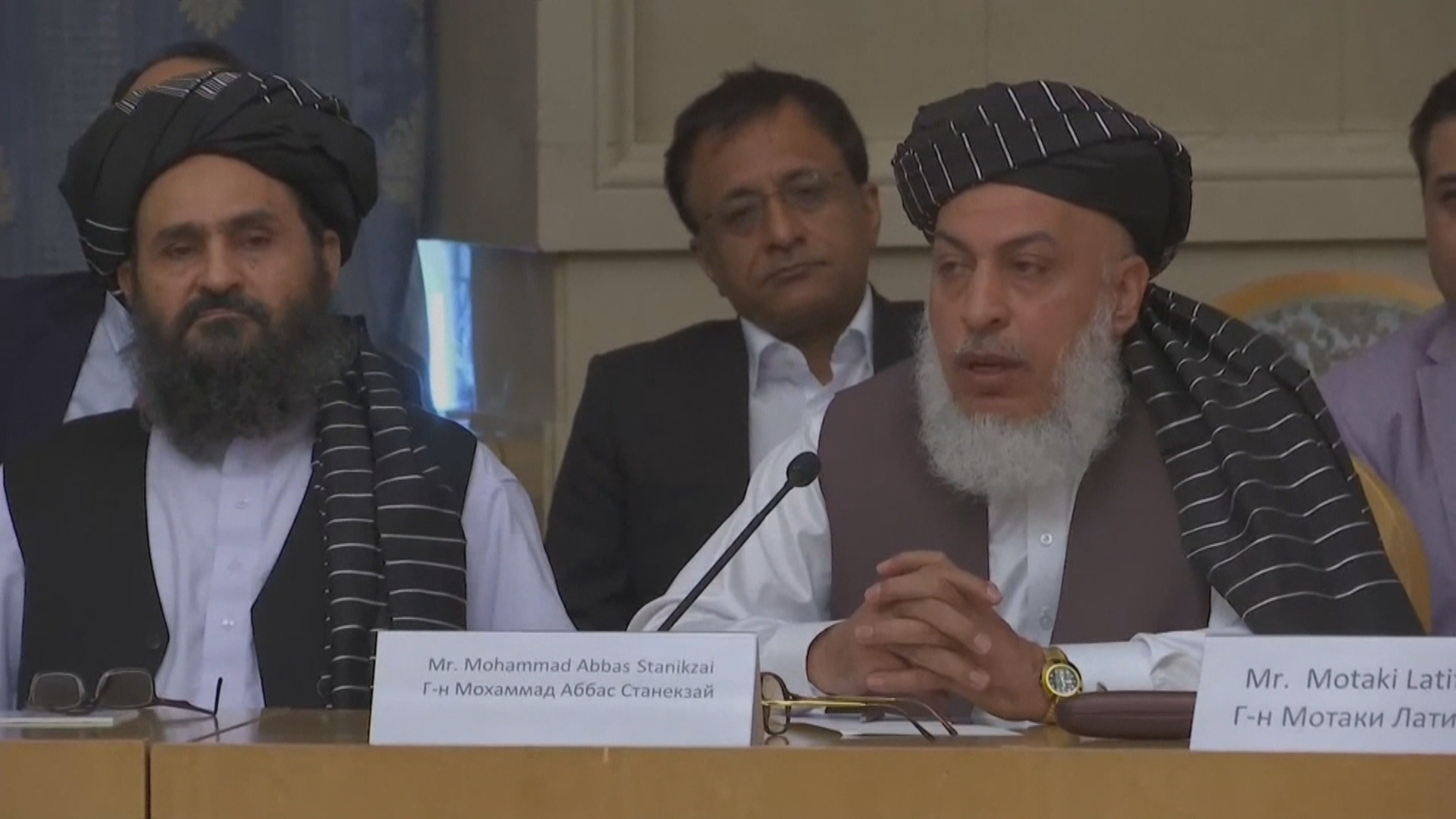Part 6 of 6: Understanding Afghanistan as a multi-focal civil war
21. Looks like the speed of fall of ANDSF is faster than expected and the arrival of a foreign contingent has tilted the fight in favour of the Taliban — a thousand of these foreign fighters have arrived in Baharak district from Pakistan.
22. Bill Riggio is spot on, with this reply to Afghan Government propaganda. The horror of the progressive fall of major cities in Afghanistan need not occur, if proper Afghan leadership is being provided.
21. Looks like the speed of fall of ANDSF is faster than expected and the arrival of a foreign contingent has tilted the fight in favour of the Taliban — a thousand of these foreign fighters have arrived in Baharak district from Pakistan.
22. Bill Riggio is spot on, with this reply to Afghan Government propaganda. The horror of the progressive fall of major cities in Afghanistan need not occur, if proper Afghan leadership is being provided.
(a) The Biden administration could have discarded the Doha agreement, just like it discarded other policies from the Trump administration. As I said, any attempt to "Blame Trump" for the drawdown speed Biden decided is absurd. Biden has clearly stated that he wanted out. His staff needs to own the withdrawal.
(b) Taliban forces now control 65% of Afghanistan territory, are threatening to take 11 provincial capitals and are trying to deprive Kabul of its traditional support from national forces in the north, a senior EU official says. As reported by CNN, Kandahar is now Besieged on a 'Taliban-made island.' Despite the dismal prognosis, don’t expect Biden to have a change of heart. If anything, he has steeled himself anew against sending U.S. troops back into the fray.
23. Reporting from Kabul, CNN’s Clarissa Ward says Afghan President Ashraf Ghani is now urging citizens to essentially "enlist with your local warlord" to fight the Taliban. Dostum is literally the hope for millions caught by Taliban offensives, where they rape, loot and execute including prisoners. The liberal press and their strange concerns is misplaced. In the proper context, this is such a silly statement by a CNN reporter.
24. A 2012 CSIS report entitled “Avoiding Creeping Defeat in Afghanistan: The Need for Realistic Assumptions, Strategy, and Plans,” highlights the critical problems in the American strategy, the way it is implemented, reporting on progress in the war and Transition, and the lack of credible plans for the future. It identifies the following key areas where plans made ignore the fundamental realities shaping the war:- Pakistan is not a real ally and will not become one.
- The US cannot fully defeat al Qa’ida or the threat of Islamist extremist terrorism in Afghanistan.
- There is little prospect of a meaningful, stable, and negotiated settlement with the Taliban and Haqqani Network.
- The US, its allies, and the ANSF cannot establish security across Afghanistan or even in all of the “critical” districts by end of 2014, or at any predictable point thereafter.
- Development of the Afghan security forces now focuses on rushing towards unobtainable numbers of forces, without regard to effectiveness.
- Transition alone will not convert Afghanistan into a developed, functional democracy with effective governance, civil rights, and rule of law.
- Progress in governance lags far behind need, and governance is not representative of local needs and priorities.
- Hopes for major coordinated efforts at regional development are a dysfunctional façade.
(a) Taliban capture the city of Faizabad in northern Afghanistan, the 9th provincial capital to fall to the insurgents in less than a week; and
(b) an armored Humvee packed with explosives was driven against Helmand police HQ in Lashkar Gah, the Taliban’s suicide bomber detonated his vehicle packed with explosives; and 15 members of Afghan police were wounded in the suicide car bomb attack.
Last edited:




